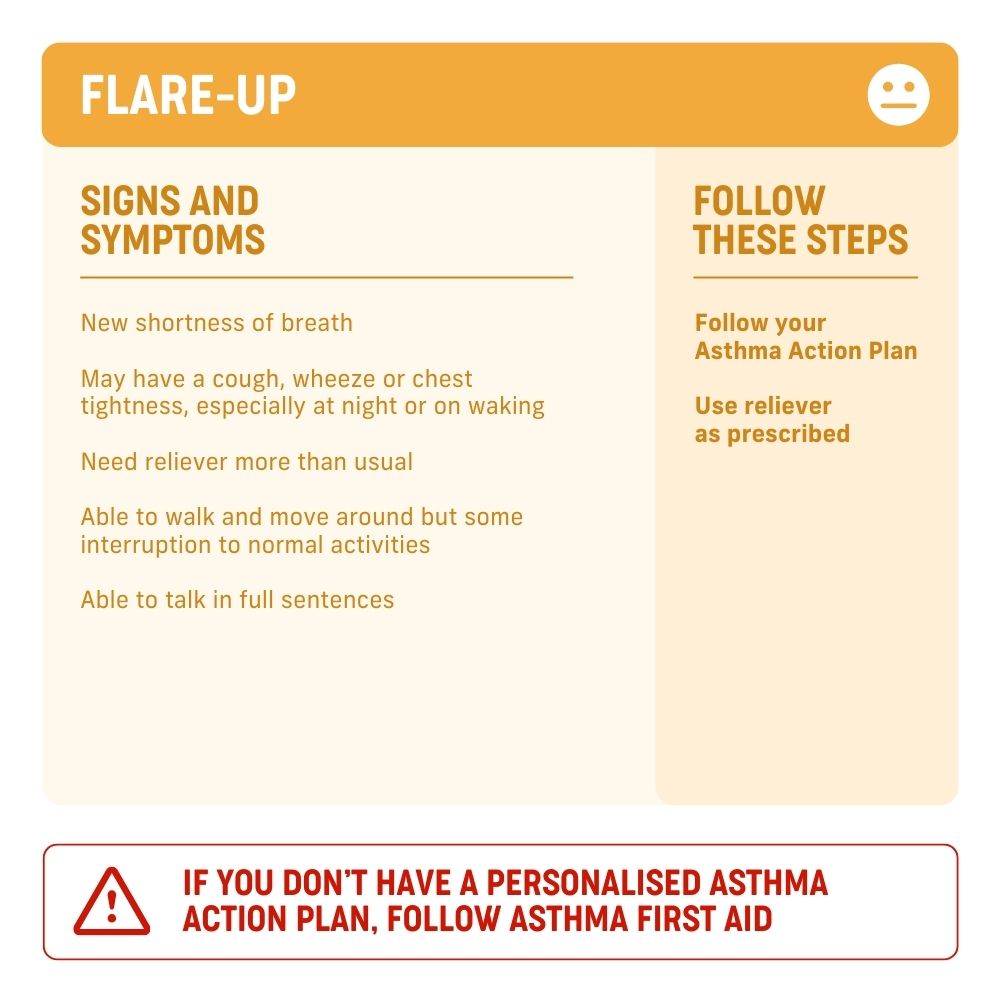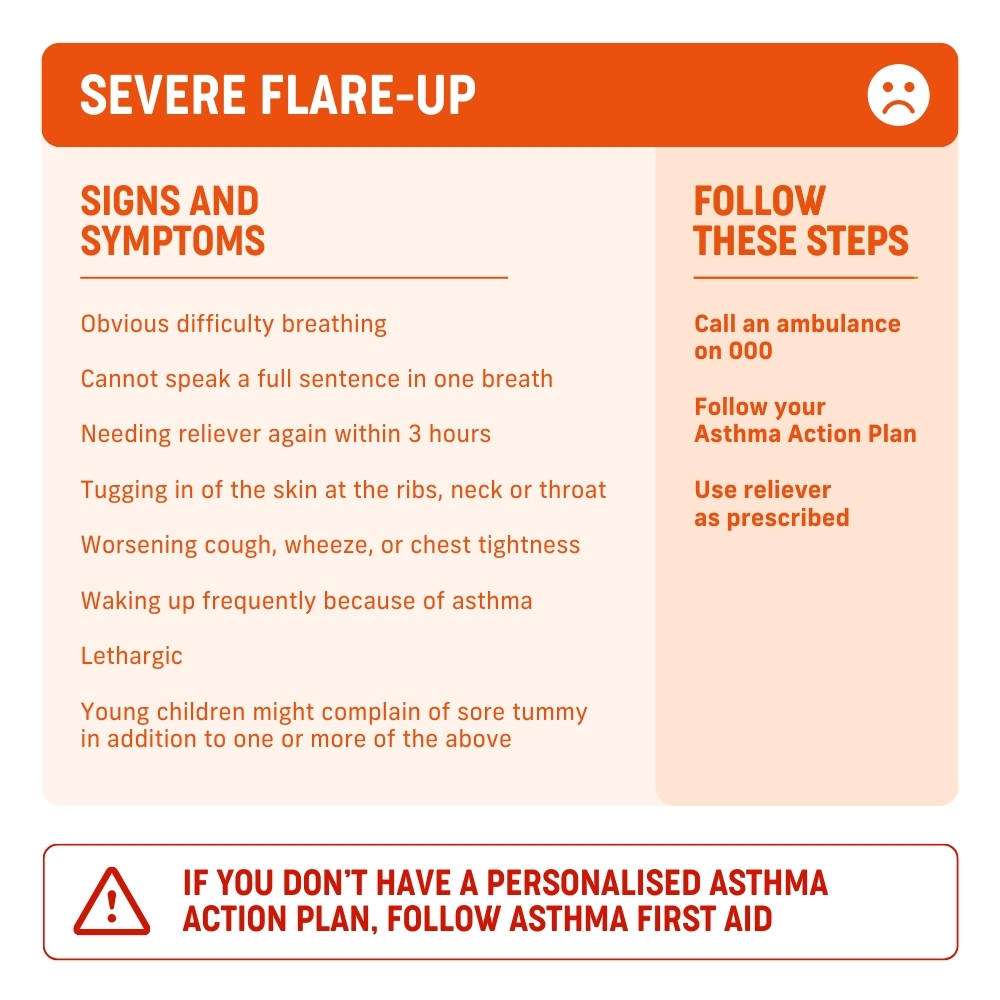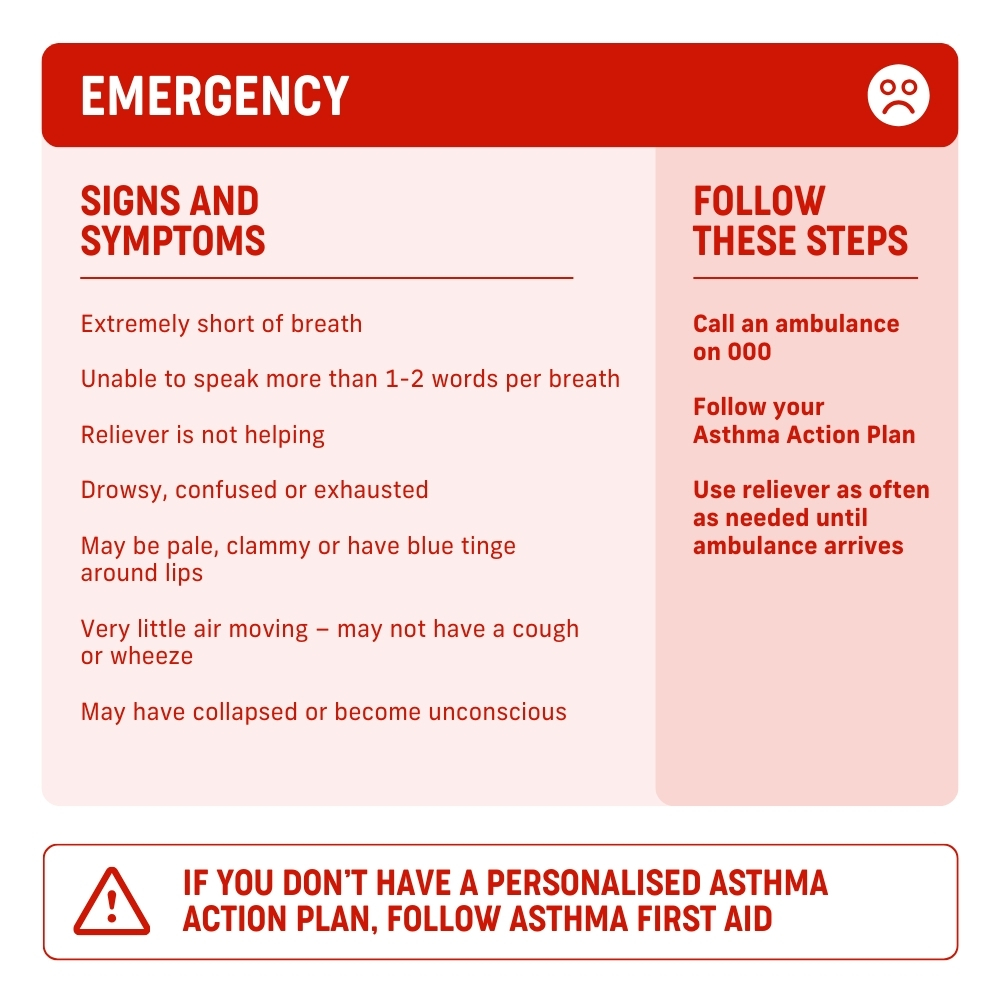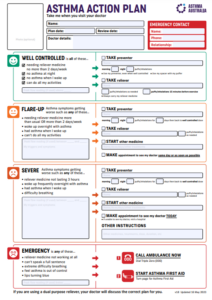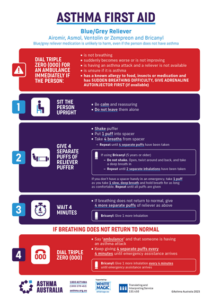WHAT IS AN ASTHMA FLARE UP?
An asthma flare-up can also be called an ‘asthma attack’ or ‘exacerbation’.
Asthma symptoms might begin to flare up or get worse slowly (over hours to days). This kind of flare-up may begin with mild symptoms, but can become severe.
Or, asthma symptoms might become severe very quickly (in seconds to minutes). This kind of flare-up is what most people know as an asthma attack. Depending on how bad the symptoms are, this could also be called a ‘severe’ or even ‘life-threatening’ flare-up.
WHAT IS A BAD ASTHMA FLARE-UP?
Asthma symptoms and flare–ups come in all shapes and sizes. An asthma flare-up might look or sound different for different people. The most common symptoms of an asthma flare-up are worsening cough, persistent wheeze, being short of breath and feeling tight in the chest. During a flare-up you might feel like your reliever is not working or doesn’t work for as long as usual.
HOW DANGEROUS CAN ASTHMA GET?
All asthma flare-ups are bad, but some flare-ups are more life-threatening than others.
Around 400 people a year die from a severe asthma flare-up in Australia.
Repeat flare-ups, over time, are linked to faster loss in lung function
This table helps you check how serious an asthma flare-up might be.
How close are you to a flare–up? Do the Asthma Control Questionnaire (ACQ5) to find out how controlled your asthma is this week.
WHAT IS A ‘SILENT’ ASTHMA ATTACK?
Not all people with asthma will have a wheeze or cough during an asthma flare–up. But they may still have other severe or life-threatening symptoms. In fact, for many, once an asthma flare–up reaches an emergency level, their cough or wheeze disappears. This is because their airways have squeezed so tight that they can no longer get enough air in and out to make those sounds. This is very dangerous.
WHAT IS THE AFTERMATH OF AN ASTHMA ATTACK?
An asthma flare-up can be very scary. Maybe you were able to treat it yourself, or maybe you had to go to hospital. If you were prescribed rescue tablets or liquids for your child (oral corticosteroids) you might feel some side-effects over the next few days.
If you or your child has had an asthma flare-up or attack, even with mild symptoms, book a visit to your doctor to review your asthma care to recover, and make plans to do all you can to prevent another flare-up. This might include starting, changing or increasing your preventer. Preventers are key for preventing asthma flare-ups, avoiding the need for rescue tablets or liquids, and keeping healthy lungs.
To help get back on track after your visit to the emergency department or hospital, click below to visit our after hospital page.







